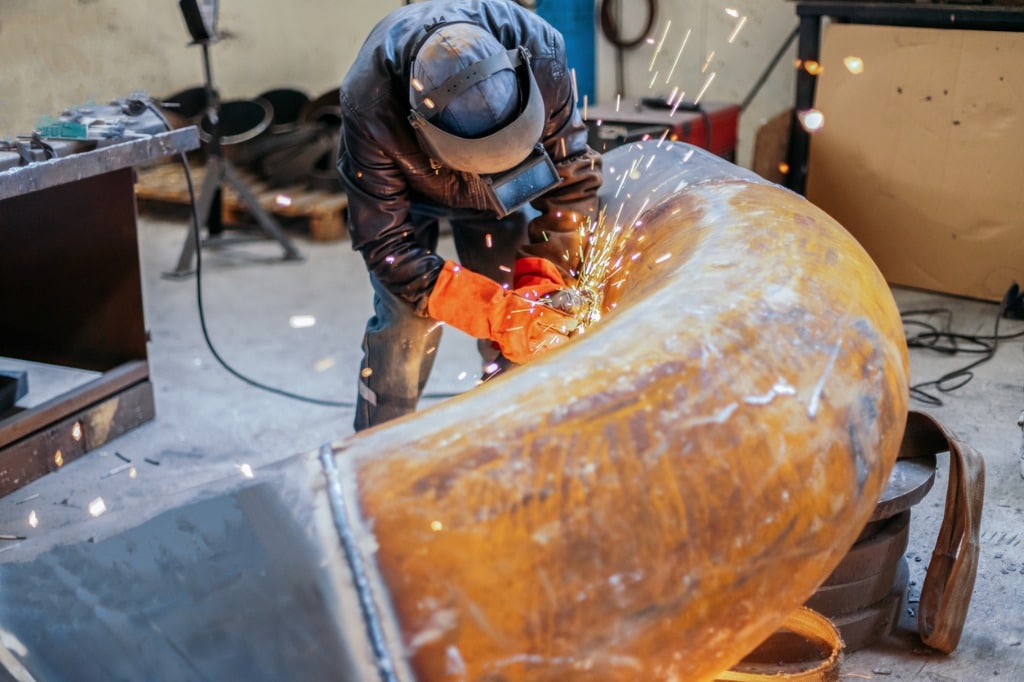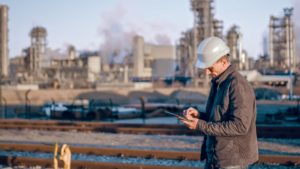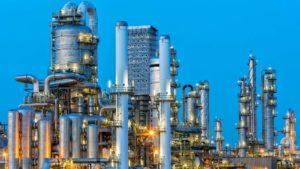
Occupational Hazards in the Oil and Gas Industry

The oil and gas extraction industry is one of the most dangerous, as it has one of the highest fatality rates of any industry. Although safety management is a top priority for most petroleum companies, it is impossible to avoid the hazardous nature of oil and gas fields completely. Thus, companies must keep safety violations and poor resource management to a minimum.
Some injuries and deaths will be entirely out of your control, and we want to keep it that way. Any losses should be due to freak accidents. Nothing more. The following are examples of common incidents that take place in the oil and gas industry.
Struck-By, Caught-Between, and Caught-in Incidents
Oil and gas workers utilize hefty extraction machines that are both dangerous and difficult to handle. These machines and whatever comes out of them are some of the most common causes of fatalities and injuries in the oil and gas sector. Oil and gas workers handling these machines are at a risk of being struck by, caught between, or stuck in these machines and their components.
These machines can cause severe burns or leave workers handicapped for life. Even if a single worker gets caught in an accident with one of these machines, it can lead to a massive disaster halting operations on the floor. Such incidents mainly occur because of a lack of training, which is extremely common in the modern-day oil and gas industry.
Vehicle Accidents and Collisions
Oil and gas vehicle accidents claim hundreds of lives every year. Oil and gas extractions typically occur in remote areas, and big tankers and containers transport the extracted material to cities and mainlands. Sometimes, expert drivers are not the ones in charge of these heavy vehicles.
Other times, the traffic-related incidents on highways make it almost unavoidable for these drivers to control their vehicles. Deaths, injuries, and vehicle damage all occur because of motor vehicle accidents. Untrained, tired, or careless drivers are often the primary reason behind such incidents.
Falls and Trips from Height
Oil and gas sites use elevated equipment, often requiring operators to work at dangerously high levels. A single slip can spell disaster. The panels that these workers stand on are often too narrow, so, unsurprisingly, many oil and gas extraction workers lose their balance and fall to their deaths. The best-case result of a dangerous fall is often a severe injury.
Fires and Explosions
The presence of heavy machinery on oil and gas sites means there is always a risk of fires and explosions. Sometimes, fire erupts from the machines, and other times, it shoots out of the extraction site.
The surrounding vapors and gases are highly flammable, and they saturate the air with chemicals. Limiting these hazardous chemicals and gases is very difficult since they emit from essential oil and gas processes. The risk of flames and explosions is ever-present in the oil and gas industry, and only a few precautions can minimize these hazards.
Narrow Spaces
Drill floors are full of reserve pits, small spaces, narrow doorways, and other construction features. Workers often move through these tight spaces, and sometimes, they even have to enter storage tanks to deal with issues.
These confined spaces are hazardous because of ignitions, chemicals, vapors, and more. The workers spending time in such spaces could die or faint due to suffocation and over-exposure to chemical substances. Narrow passages with hazardous gases in them are often prone to ignitions and explosions.
Avoiding Hazards in the Gas and Oil Industry
It is impossible to completely remove hazards from a gas or oil field, which is why safety management teams need to adhere to the highest industry standards if they want to ensure the wellbeing of their workers. Following these safety standards can minimize the risk of injuries and deadly accidents.
Train Your Workers
Nothing beats health hazards like a trained workforce. You need to prepare your workers to handle issues as they arise. They also need to be knowledgeable and equipped to handle the machinery found on an oil and gas field. Training your workers as intensely as possible before letting them on the field is the best way to minimize risks.
Ensure On-Site Protection
Training isn’t enough to ensure an oil and gas extraction worker’s protection. The oil and gas field should feature all the safety precautions needed to keep site fatalities low.
- The site should have fire extinguishers, first-aid kits, warning signs, and designated, easily accessible emergency exits.
- All walkways and structures should be sturdy and constructed properly so that workers don’t injure themselves when climbing or using equipment.
- Provide and make sure that your workers wear personal protective equipment (PPE). Important PPE includes appropriate footwear, masks, goggles, earplugs, and gloves.
- Require your workers to sign in and sign out when they enter and leave the site so that you can ensure no one went missing during a particular shift.
Keep Long Shifts to a Minimum
Shifts in the oil and gas industry can be long and arduous. Workers often don’t have adequate time to rest and recuperate. Exhausted and ailing workers are the most vulnerable to hazardous situations, which can lead to fatal consequences.
Gain Insight into the Oil and Gas Industry By Joining COPAS
You must keep your oil and gas workers safe, and no one understands this more than COPAS. COPAS is the Council of Petroleum Accountants Societies. Members of COPAS are at the forefront of driving change and innovations that shape accounting in the petroleum industry.
By becoming members of COPAS, petroleum accountants societies gain leverage in the industry, increased knowledge and insight, and a platform to collaborate with like-minded professionals. You can outpace the rest and learn more about our industry’s best accounting practices, standards, and guidelines.
In addition, we established our Accredited Petroleum Accountant® (APA®) program in 1996 to certify accountants within the oil and gas industry. It ensures that petroleum accountants are proficient in the basic elements of knowledge essential to oil and gas accounting.
COPAS POLICIES: Complaints | Cancellation & Refund Policy


















